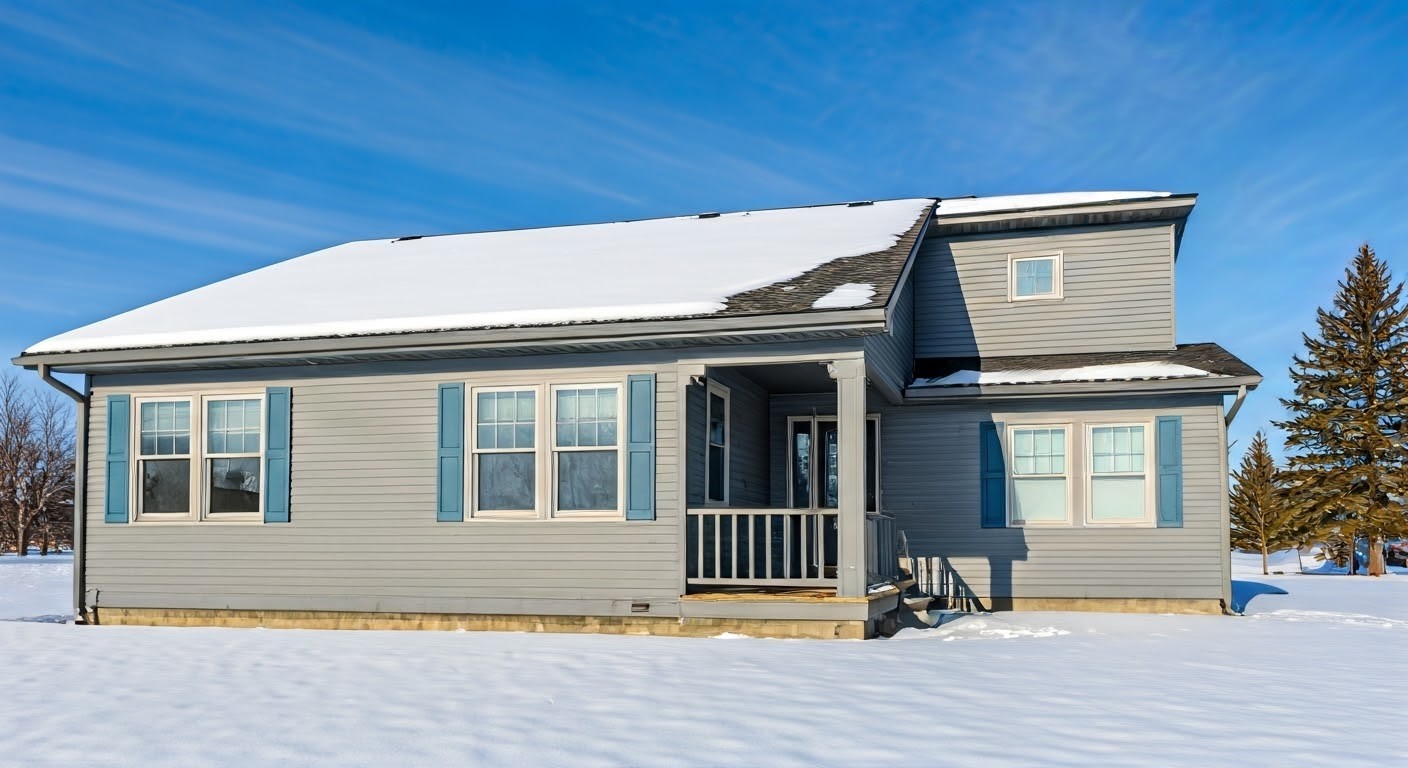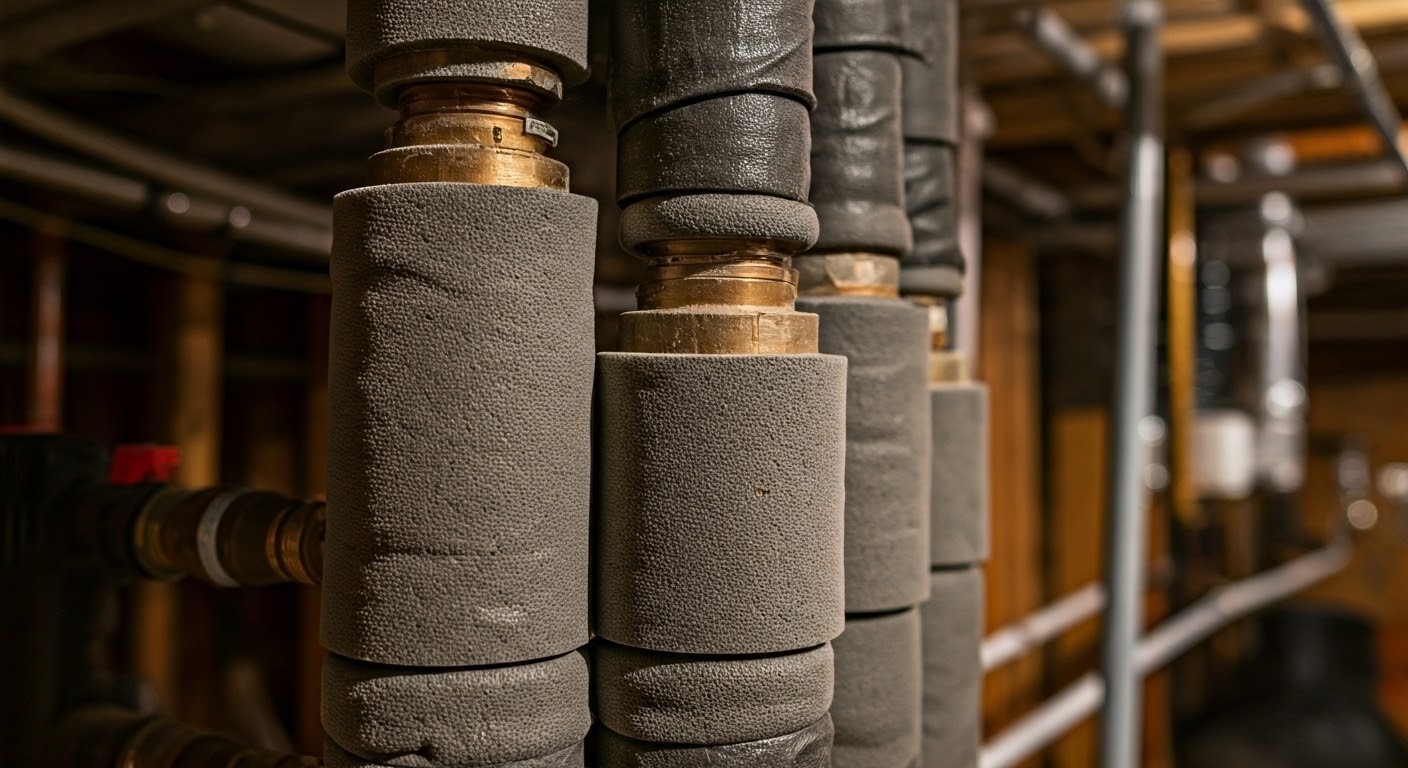
As temperatures drop, many homeowners rush to get their homes ready for the cold. Besides getting out the space heater and sealing your windows, it is very important to protect your water supply. Frozen pipes can cause significant problems and expensive repairs. This winter, take proactive steps to safeguard your home with these useful tips.

Before winter’s first frost, check your plumbing. Look closely at the water supply lines in unheated areas like basements, garages, and crawl spaces, as these pipes can freeze when temperatures drop.
To prevent pipes from freezing, use insulation. Get high-quality pipe insulation and make sure it covers the entire pipe. This will block the cold air and help maintain a stable temperature inside the pipe.
Insulating exposed water pipes is crucial to preventing freezing during winter. By using foam or fiberglass sleeves, you can protect your water pipes from the cold, reducing the risk of them bursting and causing water damage. Insulation helps maintain consistent temperatures, safeguarding your plumbing system from the harmful effects of freezing temperatures. Additionally, insulating water pipes not only prevents potential water damage but also improves energy efficiency by reducing heat loss. Remember, even interior water pipes in unheated areas like basements and attics need insulation to avoid freezing. Taking this simple step can save you from costly repairs and inconvenience during the chilly winter months.
Outdoor faucets, often called hose bibs, can freeze easily. To avoid this, make sure to disconnect all garden hoses and drain any leftover water before the first freeze. This prevents water from freezing in the hose and damaging the faucet and the plumbing.
You may also want to use insulated faucet covers. These covers are easy to find and provide extra insulation against cold air, lowering the chance of outdoor faucets freezing.
Keep in mind that even a small amount of water left in the faucet can freeze and expand, potentially leading to serious damage.
Check your home for any gaps or cracks where cold air could get in. Pay close attention to areas around windows, doors, and foundation vents.
Seal these openings with weatherstripping or caulk. This helps stop drafts and reduces the amount of cold air entering your home. By cutting down on drafts, you protect your pipes from freezing and improve your home’s energy efficiency.
Drafty windows and doors can let in cold air, which can harm your plumbing. Check the weatherstripping around your windows and doors and replace any cracked, worn, or missing parts.
For better insulation, consider using window insulation kits, which are available at most home improvement stores. These kits use heat-shrink film to create a tight seal around the window frame, reducing drafts.
In very cold winters, you can also use foam insulation tape to fill gaps around electrical outlets and light switches on exterior walls, as these gaps can allow cold air to enter.
Your roof plays a crucial role in preventing your pipes from freezing. If your roof leaks, water can seep into your attic, where cold temperatures can freeze it into ice.
In the fall, inspect your roof for missing or damaged shingles. Pay extra attention to areas around chimneys, vents, and dormers, as these spots are prone to leaks. Repair or replace any damaged shingles promptly to prevent water intrusion.
If you find any leaks, address them immediately. You can patch small leaks yourself or hire a roofing contractor for larger repairs.
Clogged gutters can contribute to frozen pipes. When leaves and debris block the gutters, water backs up and freezes, potentially damaging the gutters, roof, and even the exterior walls of your home. Keeping your gutters clean ensures proper water flow away from the house.
Ensure your gutters are cleaned before winter arrives to prevent blockages. Clogged gutters can lead to water backup, causing damage to your home’s foundation and roof. Use a sturdy ladder and gloves to remove leaves, twigs, and any debris that may have accumulated. After clearing the gutters, consider installing gutter guards to prevent future buildup while still allowing water to flow freely. Regular gutter maintenance is essential to prevent water damage during the winter months.
Downspouts play a critical role in preventing water from pooling near your home’s foundation. If water accumulates, it can seep into the ground and freeze around your water lines.
Make sure your downspouts extend at least five feet away from your foundation to divert water safely. This helps reduce the risk of water freezing near your foundation.
Consider using downspout extensions or splash blocks to direct water even further away from your home.
Outdoor appliances need protection, too. Cover items like gas grills with weatherproof covers and disconnect and drain water hoses from outdoor hose bibs, even if you have faucet covers.
For swimming pools, ensure proper winterization by following expert guidelines. This includes draining the pool supply lines and winterizing pumps and filters.
If you’re leaving your home for an extended period during winter, take extra precautions to reduce the risk of frozen pipes and water damage. First, shut off the main water supply before you leave. Open the faucets to eliminate line pressure and help empty some of the water from the line. Should you have a freezing event, the expanded frozen water has a place to expand. This simple action stops water from flowing through your pipes while you’re away and can prevent a freeze from causing a major leak.
You might also consider leaving bathroom cabinet doors slightly open to allow warmer air to circulate around the pipes under the sinks. This can help prevent pipes from freezing, especially during short power outages or if the heating system fails. Upon return slowly open the main valve and close any open faucets
As well, always check your insurance policy to see what your expectations are for having your home or business routinely checked during vacation periods!
To avoid costly water damage this winter, prepare your home for the cold. Insulate pipes, seal gaps, and clean your gutters. Prepare outdoor appliances and fixtures for winter weather, and if you’re going on vacation, take extra precautions.
For water damage restoration in Calgary, reach out to our ResQ Pro team!
We also do free inspections and repairs!
We take your disaster from chaos to calm
We Restore More Than Property – We Restore Peace of Mind.